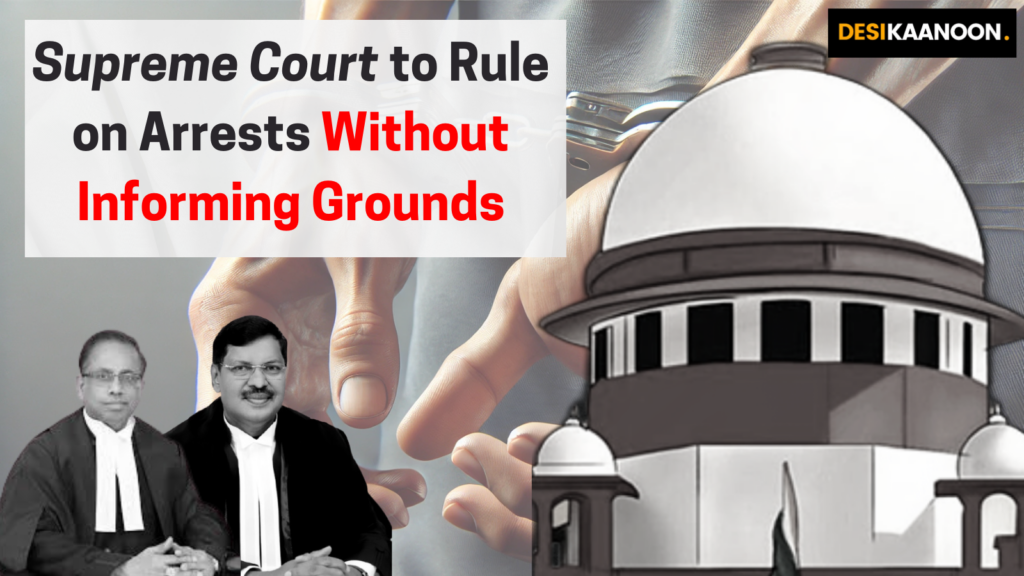Alok Singh
On December 14, (Friday) while deciding the matter in the case Mihir Rajesh Shah v. State of Maharashtra and Anr., the Supreme Court pointed out that it would decide whether failing to furnish the grounds of arrest to an accused would invalidate the arrest in all cases.
The order was passed by the Division bench of Justices BR Gavai and KV Vishwanathan while hearing the appeal against the decision of the Division Bench of the Bombay High Court, which had declined to quash Shah’s arrest despite acknowledging the argument that he was not provided with the grounds for his arrest.
“Though prima facie we do not find that an error is committed by the Division Bench of the High Court, we find it appropriate to entertain the matter so as to consider the legal position,” the Court said.
The Court therefore, proceeded to issue a notice in the matter to examine the legal issue. Further, the Court invited Mr. Shri Singh, learned counsel, to assist the Court as Amicus Curiae.
The High Court justified its decision by noting that Shah was aware of the reasons for his arrest, though not furnished by the concerned authorities explicitly. Consequently, the Court ruled that he could not claim the benefit of the Supreme Court judgment, invalidating the arrest for failing to provide written grounds.
In Pankaj Bansal v. Union of India & Ors, it was observed that the grounds of arrest must be furnished in ‘writing’ to the arrested person as a matter of course and without exception to comply with the constitutional mandate under Article 22(1) of the Constitution of India.
Merely informing the arrested person orally or allowing them to read the grounds of arrest is insufficient and unconstitutional while making the arrest illegal.
Case Name: Mihir Rajesh Shah v. State of Maharashtra and Anr.
Case Number: Special Leave to Appeal (Crl.) No(s). 17132/2024
Bench: Justices BR Gavai and KV Vishwanathan

